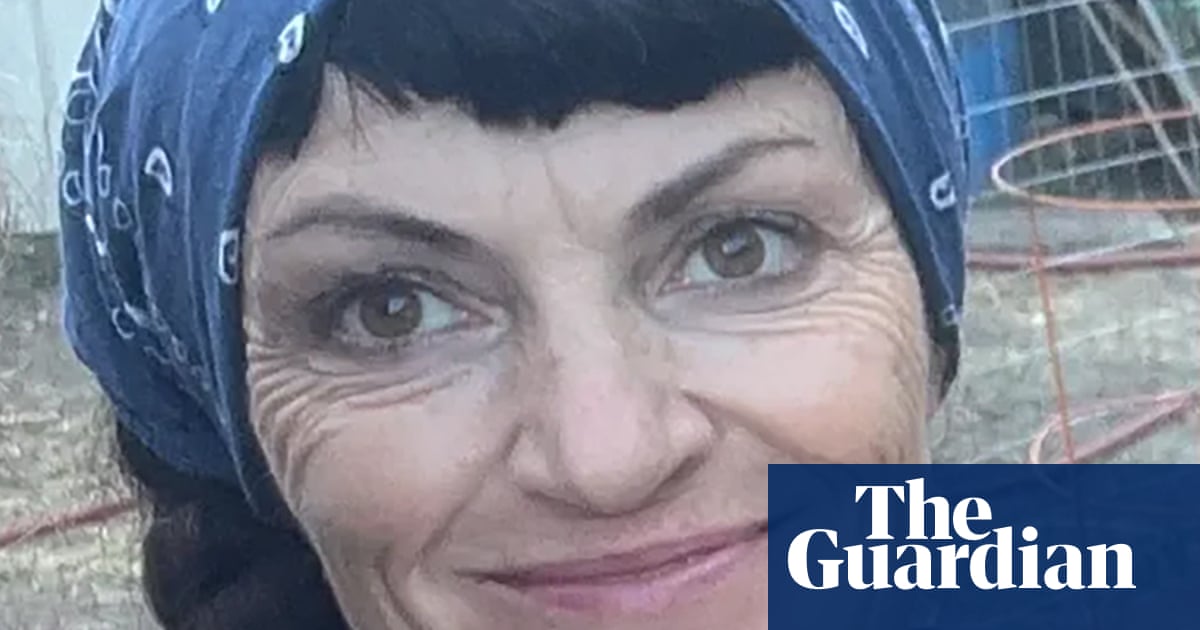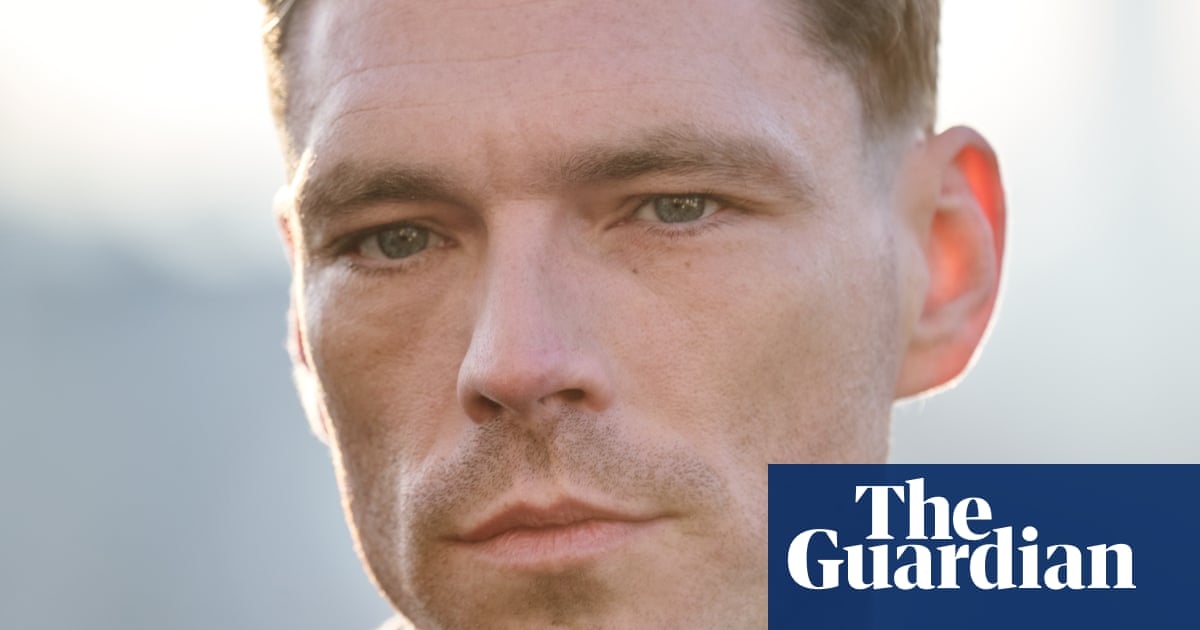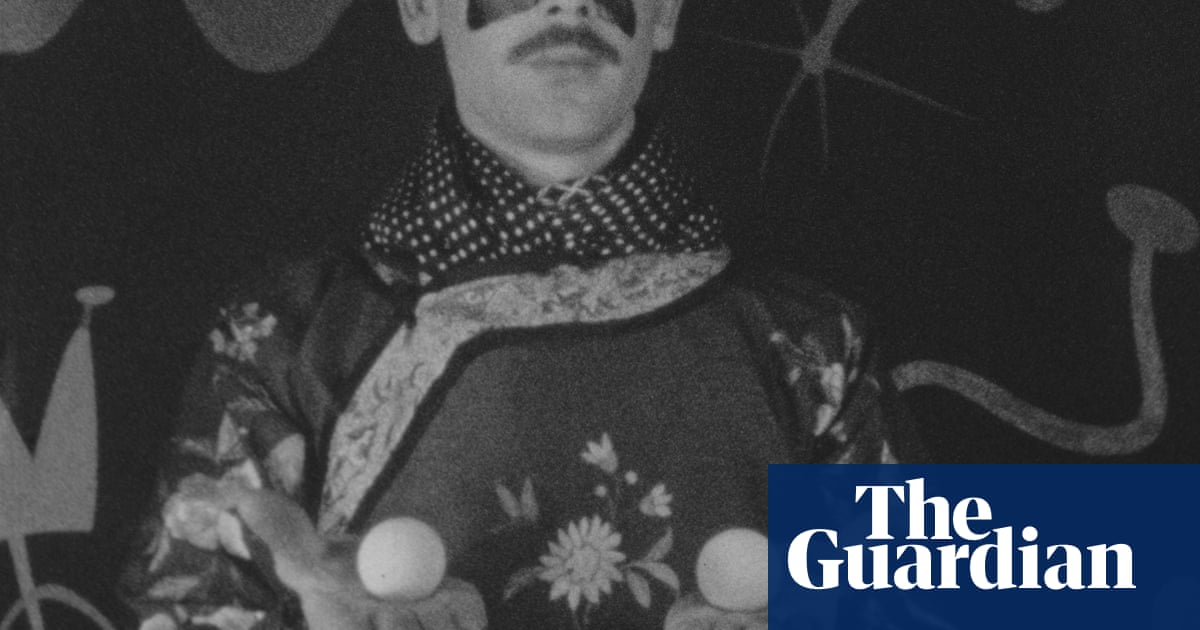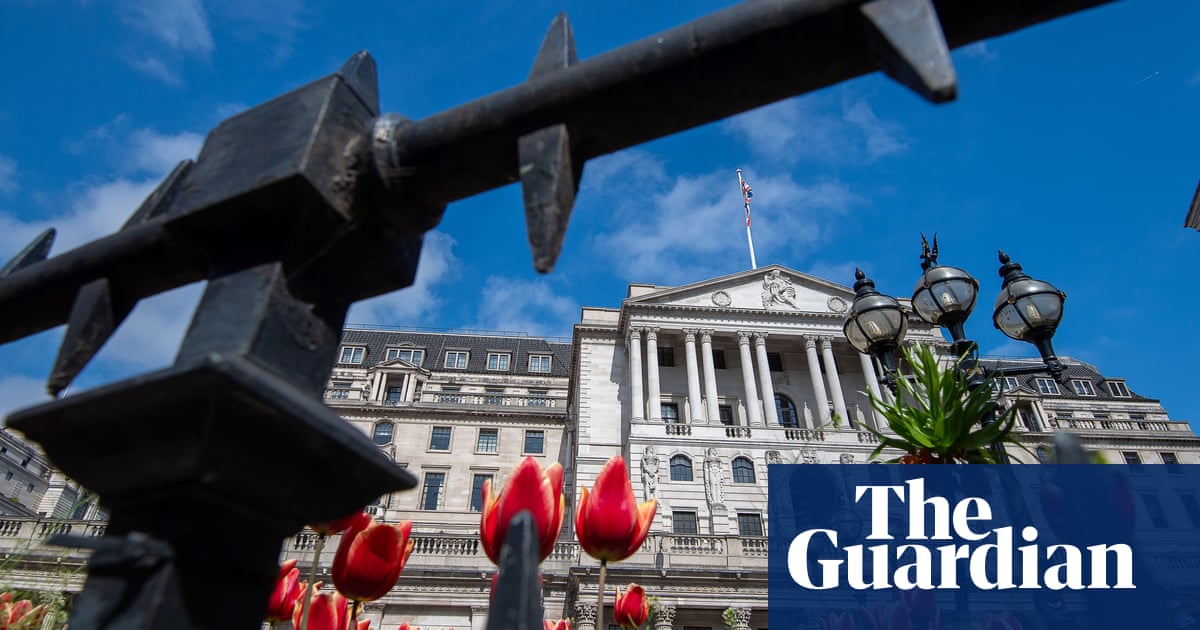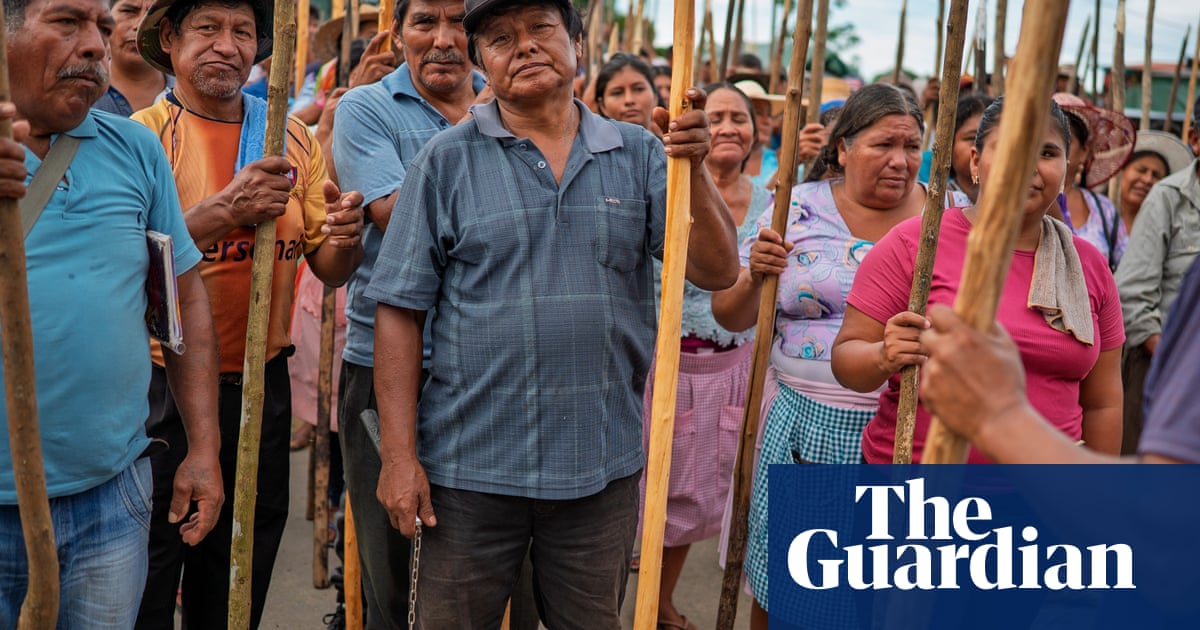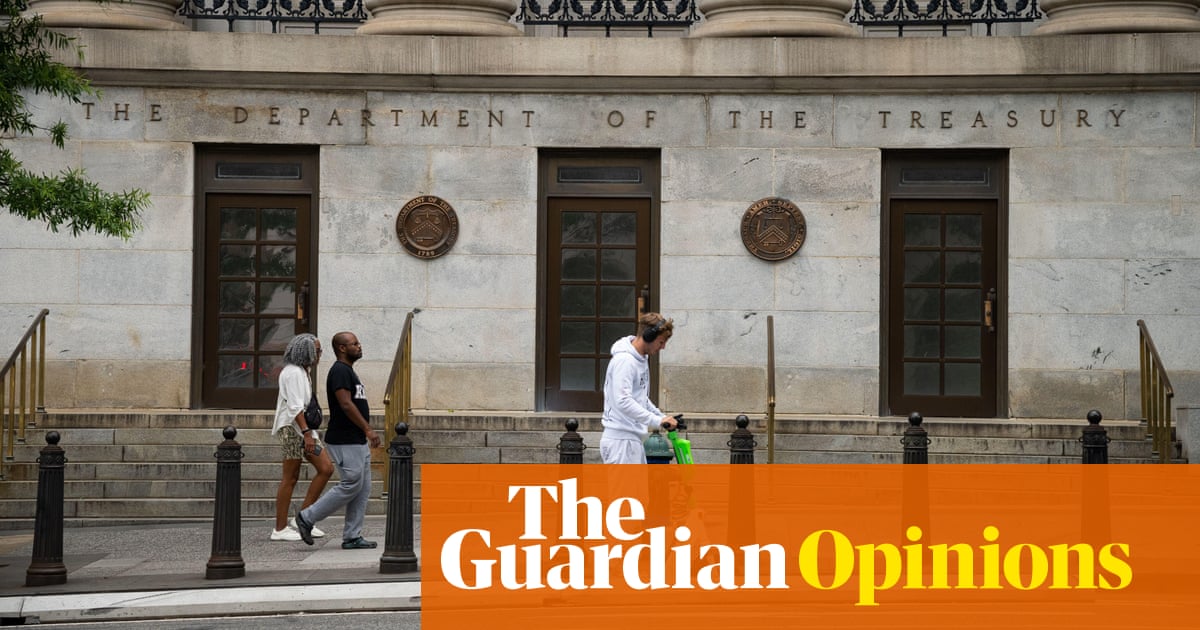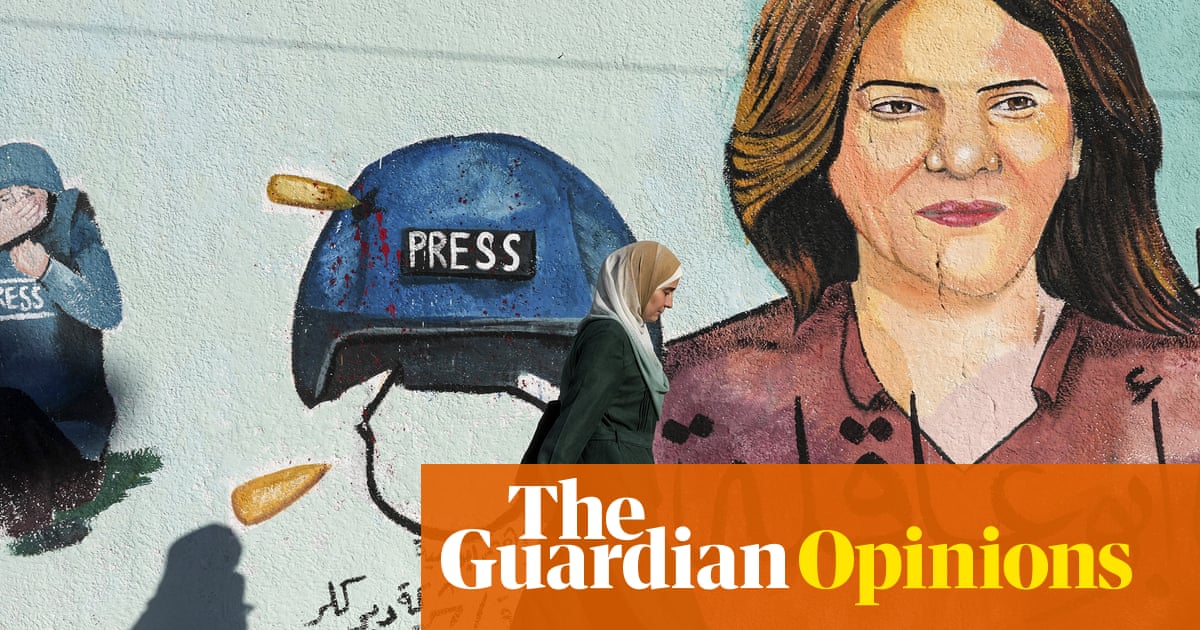Climate stories are typically defined by despair. The future we are told of is such a tragic, barren dystopia, it’s hard to look at head-on. But a flood of theatre-makers are writing their way past fear into something more useful, inspiring action through love, music, puppetry and folklore. “The ones who profit most from the idea that we’re doomed are the oil companies and the people massively polluting our planet,” reasons playwright Flora Wilson Brown. “If we allow ourselves to think there’s nothing we can do, we won’t do anything. There’s still time to act.”
Wilson Brown rejects this nightmarish narrative in her play, The Beautiful Future Is Coming, at Bristol Old Vic. Exploring the impact of the climate crisis through the eyes of three couples, the play jumps between 1856, 2027 and 2100. In the scenes set in the past, life is returned to Eunice Foote, the real scientist who discovered the greenhouse effect years before the man who took credit for it; in the future, we visit the Svalbard seed vault, where humanity has stashed the ambition of life on another planet. “It’s about making the impact emotional,” Wilson Brown says, “rather than statistical.”
In the timeline closest to the present day, The Beautiful Future Is Coming holds a mirror up, reminding us that we still have choice in our actions. “It’s easy to go: ‘I’m overwhelmed, I don’t know what I can do,’” says Nancy Medina, the show’s director and artistic director of Bristol Old Vic. “Actually, what you can do is care.” To nervously look away is a privilege, she says. “The majority of people being affected by the climate crisis, in the global south, don’t have the time or the energy to be scared of it. They are only just surviving it.” Through this lens, hope becomes an active, life-grabbing choice. A way of fighting for a future we can bear to look at.
Stories have long been the way we share possibilities of a better world. During the research and development for Bringing the Outside In, a show made by and for young people around Southampton and the New Forest, playwright Kit Miles learned about the folkloric tale of Yernagate the giant. As protector of the New Forest, the giant helps an old woman defy the man who is single-handedly cutting down all the forest’s trees. “The young people we worked with spoke about how the doom mentality makes them feel powerless,” explains Miles, who grew up on the edge of the New Forest. “As though they can’t do anything, as though it’s all lost. We are using the story of Yernagate to show that something can be done.”

A collaboration between community arts organisation Theatre for Life and the New Forest National Park Authority, the place creates a sense of intimacy through localisation. “We looked at the effects of climate change in our own community,” explains actor Imani Okoh. They spoke to climate scientists, marine biologists and rangers. Supported by the YouCAN (Youth for Climate Action for Nature) scheme, the show has been built round the young participants’ responses and concerns. “They felt strongly about the invisible parts of climate change like air pollution,” says Miles, “which then became the focus of the story.” They read about the tragic death of Ella Kissi-Debrah, a nine-year-old who died from an asthma attack, the first person in the world to have air pollution listed as the cause of death. “It’s not our grandchildren’s lifetime,” Miles says soberly. “It’s ours.”
In their story, Yernagate helps a young, isolated, asthmatic teenager, played by Okoh, as she struggles with the weight of climate anxiety. Power is handed to their young audiences through the idea of a community garden, a small act of accessible protest, with a mother inspired by Ella’s mum Rosamund “who is quietly doing everything she can”, Miles says. When they took it to show a group of young people living in social housing in Southampton, the response was effusive. “They said it represented them and their community,” Okoh says. “It’s their world, their high rise, their home.” By making their story local, the climate emergency becomes easier to grasp, easier to fight.
Though the topic is thorny, comedy snakes in, with The Beautiful Future Is Coming rolling its eyes at sustainable business as a marketing consultant takes a plane to pitch to Greenpeace. With Birmingham Hippodrome’s New Musical Theatre department, Jack Godfrey and Ellie Coote have been experimenting with the same idea. “We wanted to make something entertaining and silly that also talks about these really serious issues,” says Godfrey. “I don’t think those things need to be in opposition to each other.”
Their new musical is a romantic comedy. Pitching the Earth and humanity as two partners in a troubled relationship, Hot Mess premieres at the Edinburgh fringe this year. The duo wanted to write a show that spoke to the climate crisis, but it took a breakup and a bike ride for the idea to click. “I was writing angsty breakup songs,” Godfrey laughs, “and I was cycling to work when I realised a song I’d written could be sung from the perspective of humanity to the Earth.”
Drawing out the metaphor, they played the beats of a romantic relationship against Earth’s bumpy history with its inhabitants. “There are some dark moments which will feel relatable for people when they think about their own relationships,” says Coote, “and some will feel existential when thinking about our relationship with the planet.” But they wanted to root it in humour, not fear. “We wanted to disarm the audience with a familiar story,” she says, “and let them feel their way through.” Like the teams in Bristol and Southampton, they felt the facts of the climate crisis too easily slip from our fingers. “We wanted to use the superpower of musical theatre,” says Godfrey, “which is to move people.”
after newsletter promotion

These plays seek to take what often feels invisible and lay it out for an audience to see more clearly. Abroad, a stampede of animals are confronting this challenge on even larger stages. In 2021, a 12ft-tall puppet of a 10-year-old Syrian girl, called Little Amal, walked 8,000km (5,000 miles) from Turkey to the UK to raise awareness of the urgent plight of refugees. This summer, the same team began a 20,000km (12,400 mile) journey, shepherding The Herds, a group of lifesize animal puppets, from the Congo basin to the Arctic Circle. “The people who depend on the forest are feeling the climate crisis now,” says David Lan, one of the core team and former artistic director of the Young Vic. “Animals are already moving from their ancient habitat because the Earth is too hot. We wanted to dramatise this to express the way life is already being strongly affected by what’s happening to the climate.”
The project leapfrogs people’s resistance to admit that the climate emergency is already making our home uninhabitable by placing it in front of them, in public spaces. “Climate scientists we’ve spoken to say there is good, meaningful data,” says Lan, “but they need artists to tell it as a story people can connect with.” The idea came from taking Little Amal to the UN’s climate summit in Glasgow in 2021. The Herds will grow in size, from roughly 30 in Kinshasa to more than a hundred by the time it reaches the Arctic Circle, with new species added along the way by South African puppet company Ukwanda. “I say with confidence that the animals will have power,” Lan says, “when they rampage into city centres.”The extraordinary scale of the project, which will pass through London and Manchester in late June and early July, is part of its power. “We hope it being so extensive expresses that you can do big things,” Lan says. “You can bring people together. You can change things.” Like Bristol Old Vic and Theatre for Life creating local connections, The Herds is made possible by its partnerships; Little Amal formed collaborations between organisations who had existed next door to each other for years but had never thought to work together. “The provocation is to engage,” Lan says. “Find the place where your energy can be effective, where you can connect to other people.”
By shifting the narrative from doom to hope, these theatre-makers aim to inspire conversation, action and collaboration. “We can only do it together,” Lan says of changing our minds and our future. “Doing it by instruction is not going to work. It’s got to be felt.” While their stories take different forms, they all believe in the power of the emotion that can gather in a crowd. “Hope is built on community,” notes Miles. “All it takes is a theatre’s worth of people to do something big.”
The Beautiful Future Is Coming is at Bristol Old Vic, 15 May to 7 June; Hot Mess is at Pleasance Two, Edinburgh, 30 July to 25 August; Bringing the Outside In is at Mayflower, Southampton, 15 July, then touring in 2026; The Herds visits London, 27 to 29 June, and Manchester, 3 to 5 July.

.png) 5 hours ago
5
5 hours ago
5
